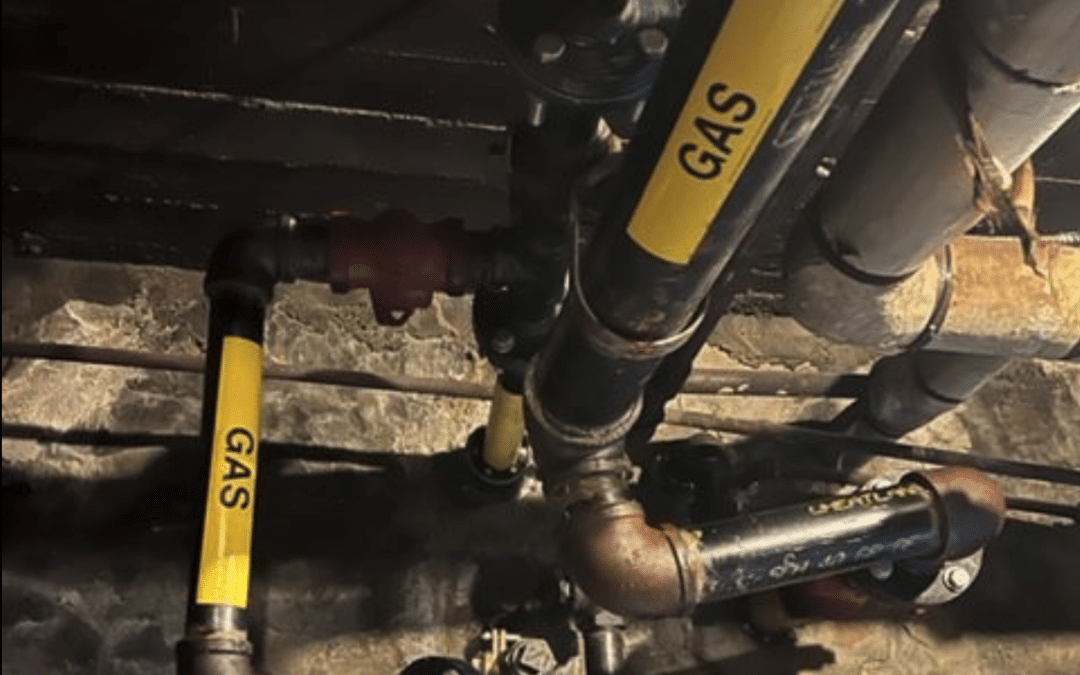If you have gas appliances, especially gas stove tops with igniters, you’ve probably experienced the “rotten egg” smell. The smell often occurs when the igniters grow faulty; when turning the knob, the gas comes out but has no flame to convert it—and you get that horrible scent.
Just a little bit is not that dangerous—but exposure to large amounts of gas spreading throughout your home and breathed in can cause illness and even death.
To help prevent this, we recommend getting a natural gas detector that can alert you to the presence of a leak.
There are a few things to remember when choosing a detector:
The gas detector should be loud enough to get your attention immediately. If the detector runs on batteries, make sure to change them periodically. A good schedule to follow is Daylight Savings—when the time period begins and ends, change out the batteries in your detector (this is a good time to change the batteries in your smoke detector, too).
If your detector is plug-in powered, stay updated on the news about the manufacturer’s suggested replacements. You’ll want to ensure you purchase any updated equipment so your first line of defense against a gas leak is in top condition.
We also recommend that you locate the shut-off valve for your gas line. This is usually found near the gas meter or where the gas line enters your home. It is important to know where this valve is so that you can shut off the gas supply if necessary.
If you’re home right now, pause your reading and look for the gas shut-off valve. The gas shut-off valve should be tagged and marked so anyone can find it easily, but if you can’t find it, call your utility company to ask for its location or ask your plumber the next time you have one in your home. A little preparation can be a big help with a gas leak emergency. If Flotechs has been to your home for a heating, cooling, or plumbing maintenance service, chances are you already know where the shutoff valve is.
If you have a gas leak in your home:
Leave your home and make sure everyone in the home has evacuated to a safe location. Alert your neighbors to the presence of the leak so they can evacuate, too, and/or turn off their gas. Call your utility company to report the gas leak (if you live in New York, call Con Edison Gas Safety at 1-800-75-CONED or 911)
Your utility company will send one or more employees to your location to detect the gas. Depending on the severity of the leak, they may be able to fix it that day and restore service to your home.
It’s important to note that if the gas leak is found in your privately-owned gas or piping equipment, the utility company will only shut off the gas to your home and you’ll need to contact a licensed plumber to come out and fix the leak.
Here are the steps to take once your gas has been turned off by Con Edison:
1) Call Flotechs Plumbing & Heating. We are a licensed and insured plumbing company that has worked with Con Edison to have gas turned back on.
2) We will come out to your home or business to get a sense of the job and what kind of shape the pipes are in.
3) We will file or work with you to file the job with your local building department as well as Con Edison before starting the gas leak repair work.
4) We will find the gas leak by testing the pipes. The pipes will be replaced to ensure there is no leak. Then we will run rigorous tests to ensure that the problem is fixed 100%.
5) We will notify the building department, so they can inspect and certify the leak was fixed. We will be at your home for this inspection, so you don’t have to worry about it.
6) Your gas service will be restored once two satisfactory tests are completed: visual and leak tests.
Flotechs Plumbing & Heating help homeowners, renters, and business owners experiencing gas leak emergencies in Yonkers and greater Westchester County areas. We are licensed to work with gas and have performed hundreds of successful gas restoration services with minimal homeowner, business, or renter involvement. We can be reached at 914.207.8901; for gas emergencies, our number is 1884-FLO-TECH. If you’re experiencing a potentially dangerous gas emergency, please call your utility company’s hotline directory or call 911 immediately. DO NOT STAY IN YOUR HOME.



